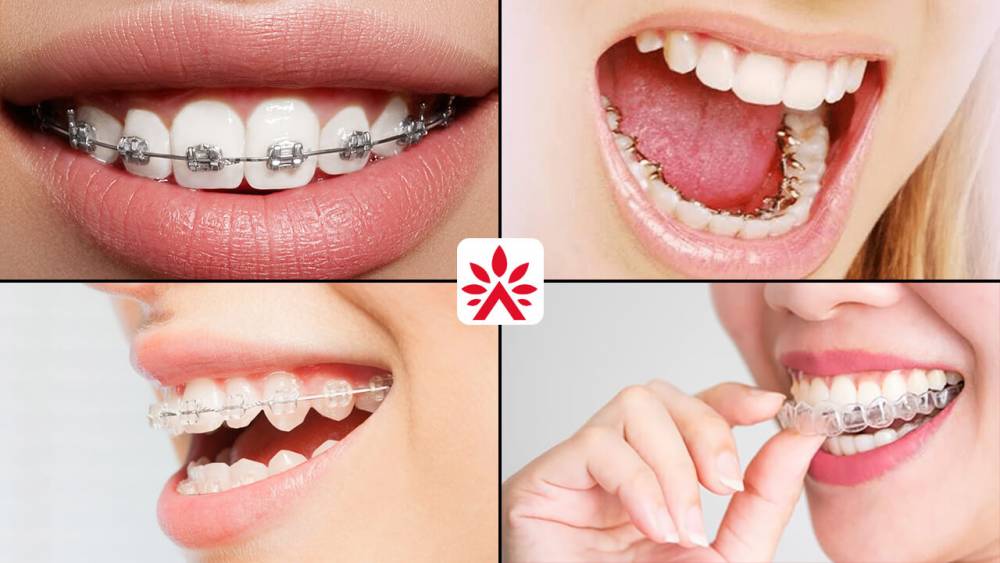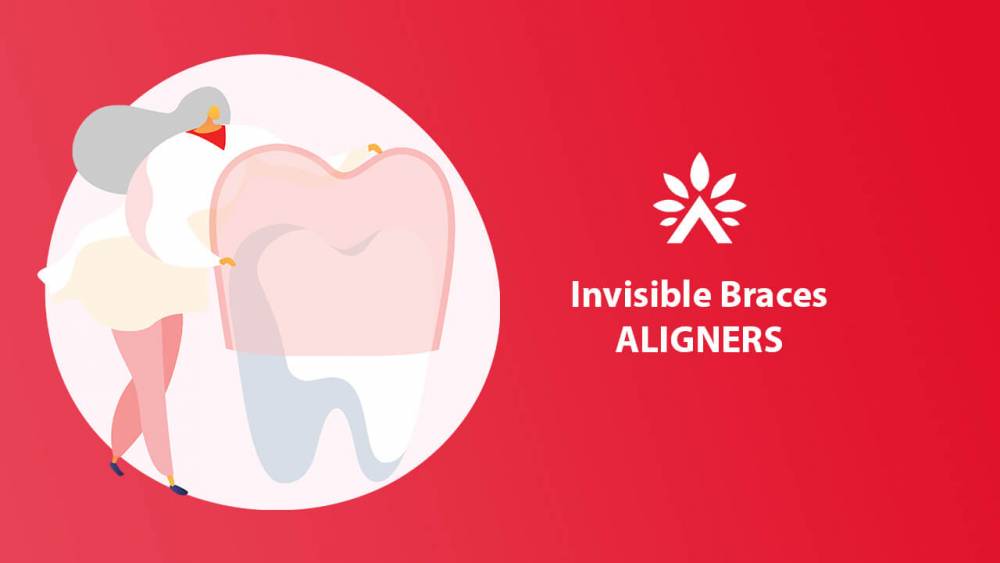
Dental Consultant or Dental specialist is the right choice for your crooked teeth?
Which Dental Consultant or Dental specialist is the right choice for your crooked teeth?
Mostly, people visit a general dentist for regular teeth checkups, cleanings, and tooth fillings. But sometimes, our teeth need more than just routine care. As you will never allow an incompetent medical doctor to attend to your other health issues, so also be sure you consult a dental consultant for your oral health. In this digital age when knowledge is increasing, you need an expert to attend to your dental needs. The doctor for teeth works in a very delicate, small, and sensitive space of the body.
What is the difference between a dental consultant and a dental specialist?
There is no difference between the two because the dental consultant and dental specialist is the same professional position. A dental Specialist or dental consultant is a dentist with additional qualifications and skills beyond their dentistry degree. They provide health care services through the latest dental healthcare methods with the latest dental equipment.
Here, you will learn about orthodontists’ dental consultants/dental specialists, dental professionals, and their duties.
Types of Dental Consultants or Dental Specialists
Types of Dental specialties in the field of dentistry include:
Orthodontists
Pedodontist
Prosthodontist
Oral and maxillofacial surgeon
Endodontist
While subspecialties are:
Dental Public Health Experts, Oral Medicine Experts, Oral and Maxillofacial Pathologists, Oral and Maxillofacial Radiologists, Orofacial Pain Experts, and Dental Anesthesiologists.
Now let’s have an insight into some of them. Here are six types of dental specialists you might see in your life.
Orthodontist-Teeth Alignment Specialist
Now that you have been referred to an orthodontist by your general dentist.
A dental specialist who corrects the position of your teeth and jaws is known as an orthodontist. An orthodontist aligns and evenly spaces your teeth so that the opposing teeth in the jaws are well set. They identify dental issues caused by maloccluded teeth that may develop in the future. The ultimate goal of your orthodontist is for you to have healthy bites so that you can chew, eat and speak properly.
You can trust your orthodontists for their expertise in the treatment of:
· Crooked teeth
· Bite problems, like an overbite or an underbite
· Crowded teeth
· Teeth that are too far apart
· Jaw misalignment
· Facial abnormalities
· Fixed and removable devices are used to move your teeth and jaws to their rightful positions with the use of braces and Aligners
When to visit an orthodontist for braces?
To avoid years of embarrassment, it is recommended that you take your child for orthodontic check-ups at age 7 so that the orthodontist determines the best time to begin the treatment. Although braces treatment can be done at any age till 60 years if medical conditions are suitable. On the appointment day, the first dental specialist near me, you will come across is an orthodontist. An orthodontist may employ braces, clear aligners, palatal expanders, or headgear as part of your treatment plan wherever needed. Children frequently see orthodontists, but as adult braces, Aligners grew more widespread, and adults of all ages increasingly see them. At the age of 7 deciduous (milk) teeth start shedding and their successor permanent teeth are erupting. An orthodontist will check with the help of an OPG x-ray whether they are erupting in right place. The parents which themselves have undergone orthodontic treatment or have malocclusion problems must see their children at this age because one of the causes of misalignment of teeth is hereditary. An orthodontist plans to remove milk tooth/teeth after looking into X-ray at this stage if their permanent successors are erupting in the wrong direction. The width of premolars is smaller than deciduous molars, to add to your information milk teeth set doesn’t have premolars, and they have incisors, canines, and molars. An orthodontist will remove the molars if any jaw discrepancy is seen in the early stage. Jaw discrepancy is when the jaw bone is smaller and all teeth width is larger, this procedure at this age is called preventive or interceptive orthodontics.
Dental braces procedure
What is the steps of getting braces? Thinking uncomfortable with metal Braces in your mouth? You can choose invisible braces/aligners. Over time, invisible braces slowly move the position of your teeth to the right place. Invisible aligners are customized clear plastic trays and are made to fit around teeth according to each patient's jaw size, and the number of trays depends on the severity of teeth misalignment. Want to learn more process of getting braces, click the link.
Teeth straightening services are available for both children and adults with Aligners at our dental consultant centers. Though the earlier treatment with Aligners is better but is also known to adults because it is inconspicuous. More fast results are achieved with children than those adults because treatment time duration is less in children than in adults because of growing jaws.
Check your dental insurance coverage first, whether you are seeking orthodontic treatment for yourself or your kid, so you know out-of-pocket costs. Also, some plans demand a recommendation from your primary dentist before obtaining an orthodontic treatment, so check with your dental insurance provider for more information.
After consultation with our Aligners provider who is an orthodontist, some patients need root canal treatment, extraction, fillings, scaling and polishing, and dental x-rays before starting the treatment of crooked teeth with Aligners. An Orthodontist will refer you to other dental specialists near me to complete the suggested dental procedures before the smile journey. There are different dental specialists in this case, and each has a different role in caring for your Smile teeth.
Endodontist: a Dental specialist in root canals
If your tooth's pulp gets infected or the inside of your tooth is deeply damaged or sick in some other way like long-term untreated caries spread to deeper layers of the teeth, trauma to the pulp because of an unforeseen accident, your regular dentist will probably send you to a dental specialist called an Endodontist. Endodontists are like quiet superheroes who know how to save the life of your teeth.
The soft pulp, blood vessels, and nerves inside our teeth are in tiny passages called root canals that look like little caves. An endodontist is a dentist who looks for problems in this sensitive part of the tooth and treats them. Endodontists figure out why a tooth hurts and, often, do root canal treatment on diseased teeth.
Oral and Maxillofacial Surgeon
This dentistry specialty focuses on the hard and soft tissues of the face, mouth, and jaw. This dental specialist is required for all types of major oral surgical procedures. Oral and maxillofacial surgeons undertake more difficult operations or those that require more sedation than nitrous oxide or laughing gas.
What is the difference between an Oral and maxillofacial surgeon and an oral surgeon?
Oral surgeons conduct simple operations such as wisdom tooth extractions, biopsy samples, cleft lip surgery, frenectomy, and dental implant placement. While the oral and maxillofacial surgeon operates jaw bone, neck surgeries, nerve repositioning, and deals and operates oral cancer.
Pediatric Dentist/ Paedo Dentist
A pediatric dentistry specialist is similar to a pediatrician regarding a child's physical health. Pediatric dentists are experts in the oral development and dental treatment of children from infancy through adolescence. A pediatric dentist assists your child in maintaining a healthy smile for life.
Most general dentists can handle children, but parents frequently pick a pediatric dentistry specialist for their children's routine dental treatment because of their kid-friendly methods and age-specific understanding. Pediatric dentistry experts provide essential treatment such as exams, cleanings, and cavity fillings and are also excellent resources for child-specific concerns such as (groan) thumb sucking and easily perform procedures under sedation.
Pediatric dentists also identify oral problems related to illnesses such as diabetes in children. This dental professional watches your child's teeth growth and refers them to other dental specialists, such as orthodontists if needed.
Periodontist - Periodontal Specialist
A periodontist is a dentist specializing in preventing, diagnosing, and treating disorders of the gums and other tissues that support the teeth. Consider them the gum disease gurus in dentistry. Periodontists detect and treat gum disease in its early stages. Minor surgery, like gum grafts and pocket reduction operations, is also performed to treat severe gum disease and restore the aesthetics of your smile.
This Dental Specialist near me will also do gum surgeries, dental implants, and crown lengthening of dental crowns, when necessary. Your general dentist may send you to a periodontist if you have severe gum disease or if your medical history worsens and you need specialized dental intervention for gum disease.
Prosthodontist
Prosthodontists are dentists who fix and replace damaged teeth. This dentistry specialty understands all that goes into creating a beautiful, practical, and natural-looking smile. Dental operations such as porcelain veneers, crowns, dental implants, bridge repair, dentures, reconstructive dentistry, cleft palate obturators, artificial eyes, and nose, make dentures for cancer patients or wherever required, make life easy for geriatric patients are performed by prosthodontists.
If your dental treatment plan includes tooth replacement or repair, your general dentist may recommend that you see this sort of Dental Specialist.
Dental professional
Presenting your oral issues to an unprofessional person is like seeking legal advice from an unqualified lawyer. Like every medical and another profession, dentistry has dental professionals too.
The dental department must accept you as a qualified dental professional before you can perform dental health services and must be done within the scope of your license.
Dental Professionals are Dental consultants, dentists, dental hygienists, anesthetic, or dental assistants who are licensed to work in Dental Practice, as independent contractors or employees. Our dental practice has the following dental professionals.
Types of Dental Professionals:
· Dentists
· Dental Hygienists/Oral Hygienists
· Dental Therapists
· Dental Nurse
· Dental Technician/Dental Technologist
We already discussed details about dental consultants, and now we will discuss the rest of them.
Dentists
How often do you visit your dentist? You must go for regular checkups with your dentist. A dentist is a dental surgeon and health care professional who got a basic degree in dentistry to carry out basic dental procedures.
Dentists are the leaders of the dental team with excellent knowledge of the human body and oral diseases. They provide all dental treatments such as:
· Diagnosing oral diseases
· Helping to prevent and treat oral diseases
· Preventing, and protecting teeth and gums from disease and decay ( Tooth fillings, scaling polishing, Teeth whitening, Crown and bridges, impression for partial dentures, simple tooth extractions, and fluoride varnish)
Dentists' Workplace
Dentists work in:
· General dental care (your local dental practice)
· Community dental care (in your home, a school, a care home, or a community clinic).
· Hospital care (including emergency treatment and oral surgery)
· Dental public health (a non-clinical role that is focused on prevention and promoting oral health).
· Most dentists in a high street practice work as general dental practitioners (GDPs). You can work under the NHS or private, or both.
How to become a dentist?
Every country has its criteria for selection, and course duration to become a dentist. In a bachelor's dental degree, you will study theoretical and practical anatomy, physiology, biology, patient care, pharmacology, pathology, etc., and clinical dentistry subjects. After completing sessions and passing out all modules, you will get a degree in dentistry. If some one desires to be a dentist, they need to know that undergraduate dental degrees are vocational. This means that they will be trained and prepared for the positions as a dentist towards the end of their course.
Dental Hygienists / Oral Hygienists
A dental hygienist is a licensed dental professional, registered with a dental association or regulatory body within their country of practice.
An encounter with a dental hygienist will put an end to your years of oral struggles. Dental hygienists show you how you can take good care of your mouth, teeth, and gum at home. They are mostly concerned with treating gum disease and preventive dental health.
Procedures that dental hygienist provides are:
● Taking dental x-rays
● Scaling and polishing teeth
● Applying topical fluoride and fissure sealants
Dental hygienists may work in dental practices, hospitals, and community dental services.
Dental Therapists
A dental therapist provides preventive and restorative dental care for people of different age ranges. Dental therapists are professionals in dentistry that are effective in treating people with:
. Dental anxiety
. Existing medical conditions
. Physical or learning disabilities
. High levels of untreated decay
. Provide oral education
. Provide clinical examinations, scaling, and teeth polishing
. Advice people to stop smoking and further care and treatment plans
. Taking impressions and carrying out restoration work on baby and adult teeth
. Mouth cancer screenings
. They carry out their duties at dental practices, schools, and care homes.
Dental Nurse
The work of a dental nurse is to support the dentist in every aspect of your dental care. Your dental nurse is to:
· Assist the dentist
· Provide support with treatment,
· Support other members of the team
· Help with reception work
· Look after patient records
· Make notes when the dentist is examining you
· Decontaminating the instruments
· Maintaining equipment
· Make materials and supplies ready
· Put you at ease over your fears
Dental Technician/Dental Technologist
Dental technicians work with dentists and doctors' prescriptions to make:
· Dentures
· Crowns
· Bridges
· Removable Braces
· Orthodontics appliances
· Aligners
They work with different materials such as porcelain, plastic (acrylic), and gold, to construct appliances that can improve your appearance, speech, and chewing ability.
Dental technicians have five specialist areas as follows:
· Prosthodontic technicians - Design and make dentures.
· Orthodontic technicians - Fabricate dental removable braces and orthodontics appliances such as Hawley’s retainers, palatal expanders, and anterior bite planes with and without trans palatal arch (TPA)
· Restoration technicians - Focus on crowns, bridges, and veneers.
· Clinical Dental Technicians - Give oral examination, make an impression of the month, and make dentures
· Maxillofacial technicians - Work on oral surgery, cancer, and burns units, and reconstruct the damaged patients' faces.
Rest assured that your Dental technicians are well trained, and qualified to give you the best oral care. They are also regulated by the Dental Professional Advisory Committee.
Take Home Message
How to Choose the Right Dental Consultants?
Misaligned or maloccluded teeth can cause gum disease, tooth decay, and difficulty in chewing.
As you will not allow a general medical doctor to attend to your heart health issues, so also be sure you consult a dental specialist near me for your oral health issues because the mouth is a sensitive space in the body. A dental Specialist or a dental consultant is a dentist who gets a master's degree in a specific area of dentistry and gets extra training on top of their general dentistry degree.
Also, if you are battling with a bad bite or spaces in between your teeth, you may have to consult a relevant dental consultant in our orthodontic care centers. At Aligners, Finding the right Dental Consultant is so easy with just a single click. We have a team of experienced orthodontists all across the world. We have been taught to be unique, expect excellence from ourselves, and give the best care possible. How we care for patients shows how we live out these ideals and beliefs. By doing this, we can offer our patients something new and different. We work hard to assure our patients have the best dental health, running an efficient and dynamic office and always showing our core values and mission. From the first message or phone call to the moment a patient walks into the office through evaluation, treatment, payment, and aftercare. I thought, and still think, that this culture of "patient-centered and optimal dental care" is more important than how much money I make, and I still think that way. But the bottom line is essential, and I had to find a way for both worlds to live together.
Orthodontists straighten and realign your teeth. You also need to consult an orthodontist for overbite, underbite, or crossbite caused by a misaligned jaw.
No longer nervous or uncomfortable talking about therapeutic intervention because they believe patients should be treated in the best way possible. Contact us if you are seeking orthodontic treatment.
Posted On 25 Dec, 2022


